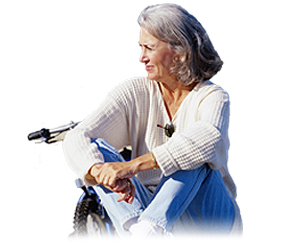Hip Pain SmartSiteTM | ||||||||||||||||||
Making sure you have enough helpDescriptionYou will be able to go home from the hospital or skilled nursing center once you are able to:
You may still need help taking care of yourself once you are home. You may need help with:
You may have family members or friends who can pick you up from the hospital and help you at home. But you should make sure you have enough help to ensure you have a quick and safe recovery. Family and friends must be able to do ALL of the tasks you need help with. If not, talk to the hospital social worker or discharge nurse about getting help in your home. They may arrange for someone to come to your home and assess your needs. Types of homecareThere are many different home care providers who can come into your home to help. Home health care nurses can help manage problems with your wound, other medical problems, and any medicines that you may be taking. Physical and occupational therapists can set up your home so it will be easy and safe to move around and take care of yourself. You'll get help with daily living skills. They also may help with exercises with you at home when you first get home. You will need a referral from your doctor to have these home care providers visit your home. Your insurance will often pay for these visits if you have a referral. However, you should still make sure it is covered beforehand. Other types of assistance are available for tasks or issues that do not require the clinical expertise of nurses and therapists. Names of some of these professionals include: Home Health Aide (HHA), Certified Nursing Assistant (CNA), Caregiver, Direct Support Person, and Personal Care Attendant. Sometimes, insurance may also pay for these. | ||||||||||||||||||
| ||||||||||||||||||
Review Date: 12/31/2018 Reviewed By: C. Benjamin Ma, MD, Professor, Chief, Sports Medicine and Shoulder Service, UCSF Department of Orthopaedic Surgery, San Francisco, CA. Also reviewed by David Zieve, MD, MHA, Medical Director, Brenda Conaway, Editorial Director, and the A.D.A.M. Editorial team. View References:  The information provided herein should not be used during any medical emergency or for the diagnosis or treatment of any medical condition. A licensed medical professional should be consulted for diagnosis and treatment of any and all medical conditions. Links to other sites are provided for information only -- they do not constitute endorsements of those other sites. No warranty of any kind, either expressed or implied, is made as to the accuracy, reliability, timeliness, or correctness of any translations made by a third-party service of the information provided herein into any other language. © 1997- A.D.A.M., a business unit of Ebix, Inc. Any duplication or distribution of the information contained herein is strictly prohibited. | ||||||||||||||||||
A.D.A.M. content is best viewed in IE9 or above, Firefox and Google Chrome browser. | ||||||||||||||||||












